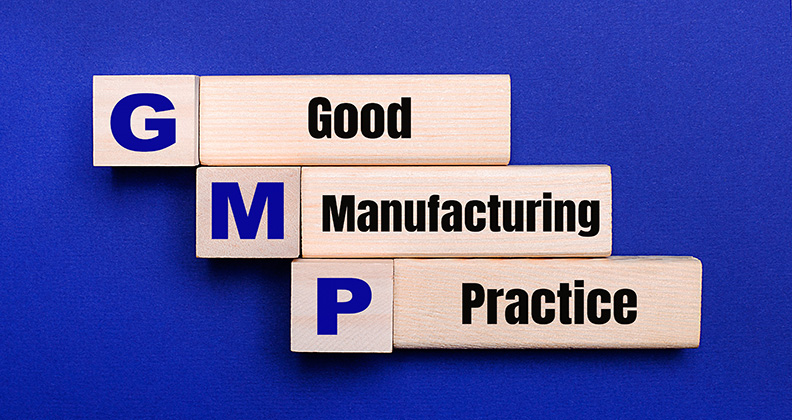Customer complaints can give medical device companies a wake-up call when they’re not achieving their fundamental purpose: that is, meeting customer requirements. Complaints are a feedback mechanism that can help orthopaedic manufacturers rapidly and inexpensively shift products, service, style, and market focus. Businesses that don’t value their customers’ complaints suffer from costly, negative word-of-mouth advertising. In many ways, orthopaedics is a small industry from a standpoint of being closely knit and tightly networked. A recent poll found that 18% of adult Americans said that their trust in business had dropped in the last year. Ninety-three percent of those same complainers indicated that a company’s reputation for honesty and fairness was very important to them. If orthopaedic companies don’t deliver what they promise, i.e. meet the customer’s requirements (the root cause of most complaints) the customers will go elsewhere.
Introduction to the Regulation – 21 CFR, Parts 198 and 803
The Quality Systems Regulation defines a complaint as any written, electronic, or oral communication that alleges deficiencies related to the identity, quality, durability, reliability, safety, effectiveness or performance of a device after it is released for distribution. All medical device manufacturers are subject to the complaint requirements in the Quality System Regulation and to the reporting requirements in Medical Device Reporting (MDR) regulation. A complaint is any indication of the failure of a device to meet customer or user expectations for quality or to meet performance specifications. A complaint may be lodged against any finished device that had been released for distribution. Any complaint involving the possible failure of a device, labeling, or packaging to meet any of its specifications is subject to the provisions of 21 CFR 820.198, Complaint Files.
Medical device companies are required to review, evaluate, and, when appropriate, investigate complaints, establish and maintain written procedures describing the process used to perform these activities, and designate a responsible individual or entity to perform these tasks. Complaints concerning death, serious injury or malfunctions, as defined in the MDR regulation (21 CFR, Part 803), shall be reported to FDA in a timely manner. Complaint file requirements are necessary to make certain manufacturers have adequate quality systems for investigating complaints and taking corrective action. Access to complaint files, device-related death and injury reports, and complaints about device defects enables FDA to determine if a manufacturer’s quality system and corrective actions are adequate.
Complaint data, in conjunction with product audits, management audits, operational analyses, inspection and test data, etc., is used by the quality assurance organization to: 1) identify poor performance in the overall quality system, particularly faulty design of devices, and faulty manufacturing processes, 2) aid in implementing solutions to these quality problems, 3) verify confidence in, and improve the performance of the quality system, 4) improve the safety and performance of devices, 5) reduce medical device reporting, 6) reduce costs and improve production schedules, 7) reduce employee confusion, 8) improve customer relations by reducing the frequency of problems, complaints, and recalls, and 9) assure compliance with device regulations and consensus standards.
An Everyday Approach to Complaints – You Need:
- Written Procedures: A written procedure for handling customer complaints that everyone in the company has been trained on, not just customer service reps or your receptionist.
- Clear Guidelines: Clear guidelines about when customer complaints need to be brought to the attention of management with executive responsibility
- Self-Control: Resist the urge to react to the complaint…..Care-front the issues.
- Initiative: The initiative to lead with the words “I want to help you.”
- Patience: The patience to let someone who has called to complain tells their whole story.
- Cooling-off Period: Once you have gathered the details from your customer about their complaint, you need to say something like “I am going to start looking into this for you. We will start to investigate the root cause(s).”
- Planned Response: Your company may not have actually made a mistake, but you need accurate information before you can discuss that with your customer. On the other hand, if your company has erred, you need time to determine what you are going to offer your customer to correct the situation and ensure it doesn’t happen again. You will not regain your customer’s confidence without solution(s).
Complaint Handling Process is Under Control
By using written procedures for handling complaints this will increase confidence that all complaints will be handled properly. Written procedures should be provided to employees to facilitate communication, maintain consistency, and reduce quality problems. Written procedures for the receiving, reviewing and evaluating of complaints by a formally designated unit shall be established and maintained in accordance with 820.198, Complaint Files, and 820.40, Document Controls, respectively. The procedures should include the need for complaints to be evaluated in accordance with 820.100, Corrective and Preventive Action, depending upon the risk(s).
Although FDA does not specify a standard complaint handling system, the cGMP-QSR requirements do specify certain actions that shall be included in any system. All manufacturers shall: 1) document, review, evaluate, and file all complaints, 2) formally designate a unit or individual to perform these activities, 3) determine if an investigation is necessary, 4) record the reason if no investigation is made, 5) assign responsibility for deciding when not to investigate, 6) determine if the complaint requires an MDR report, and 7) determine if an MDV report should (also) be filed with your company’s authorized representative in Europe.
Complaints are important for several reasons:
- You don’t know how to improve your medical device or service if you don’t know what’s wrong
- Customer complaints can supply ideas for new products and services.
- Complaints give you valuable information about what’s important to health care professionals and what they’re willing to spend money on.
- They are truly a “heads-up” gift
Complaints also tell you that the customer still wants to do business with you….. The customer still cares about the relationship they have with your company. They want you to fix the problem so they can continue to do business with you. Many health care professionals don’t complain—they just take their business elsewhere, because they’ve given up hope of getting what they need from you.
Complaint Responsibility
The person assigned to review complaints should have a thorough knowledge of the orthopaedic product line in order to make an informed, reasonable decision as to the severity and significance of a complaint and to decide whether an investigation is necessary. If it is decided that an investigation is not necessary, a record shall be made of the rationale used to arrive at this decision. The record must identify the individual responsible for making this decision.
Executive management should ensure that adequate resources are provided, including trained personnel, to the designated complaint handling unit within the company. The activities of the unit should be assessed on a regular basis, and corrections made if necessary.
Medical Device Report (MDR) Reportable Complaints
Section 820.198 specifies that any complaint that requires an MDR report shall be promptly reviewed, evaluated, and investigated by a designated individual(s), and shall be maintained in a separate portion of the complaint files or clearly identified. However, if maintained separately a manufacturer should duplicate these serious complaints in the regular complaint file to assure that any analysis performed by product is inclusive of all complaints.
Complaints are “Diamonds in the Rough”
Researchers have found that for every one person who complains, there are twenty-six who do not. Every time you complain, and/or give feedback, not only are you helping the orthopaedic company get better at what they do, but you’re providing a voice for dozens of other customers who may have experienced the same issue.
Next time you have a negative experience with a business, do them a favor and let them know! If it’s a company that really appreciates your business, they’ll be glad for the constructive feedback, make things right with you, and make the necessary changes so it doesn’t happen again.
Complaint Records
FDA does not specify a standard method for recording or retrieving complaint information. Each manufacturer should develop a method for maintaining records of complaints and investigations that: is functional and economical, meets company needs, and meets requirements of the Quality System regulation. A smart form with “triggers” is suggested when using hard or electronic copy to record complaints. This form may be used to record complaint information such as: 1) sequential number of the complaint, 2) origin of the complaint, 3) customer information, 4) product information, 5) any corrective actions already taken, 6) details of the complaint, and 7) dates, signatures, assignments, etc. The completed form should be stored in the complaint file which may be a physical or an electronic file.
File Accessibility and Location
The cGMP-QSR requirement states in 820.180 that “All records required by this part shall be maintained at the manufacturing establishment or other location that is reasonably accessible to responsible officials of the manufacturer and to employees of the Food and Drug Administration designated to perform inspections.” Complaint files should be reasonably accessible to FDA for review and copying.
Conclusion
Professor Bob Johnson of Warwick Business School, in his ICS Breakthrough Research report “Service Excellence = Reputation = Profit,” and his 2003 research “Delivering Service Excellence; The View from the Front Line” has clearly demonstrated that “what makes excellent service “excellent” and poor service “poor” is very much about how organizations deal with problems and complaints.” Therefore the professional and efficient handling of complaints is a critical factor for all orthopaedic manufacturing companies, world-wide.
John Gagliardi has had success over the past 40 years in the Medical Device and Pharmaceutical industries because of his practical approach to process-orientation and business. He has been actively involved in research and development, quality assurance, training, operations, process architecture, FDA inspections and regulatory affairs. John specializes in building systems in a compliant and business-ready manner. Reach John via eamil.
MidWest Process Innovation, LLC
513-573-0085 (phone)
www.midwestprocessinnovation.com




